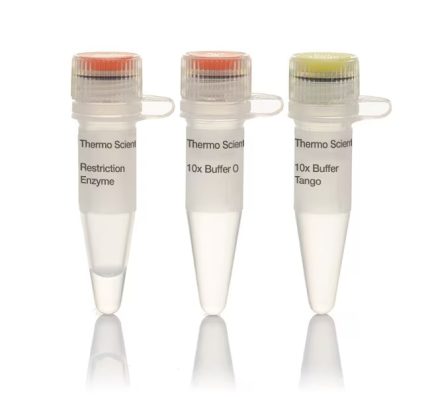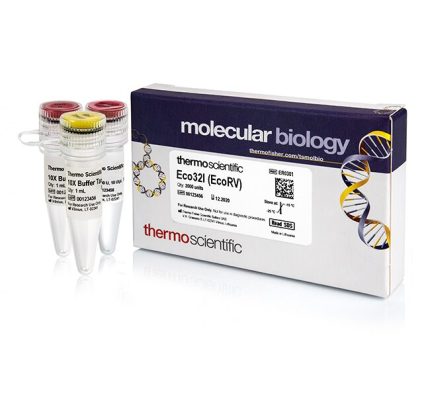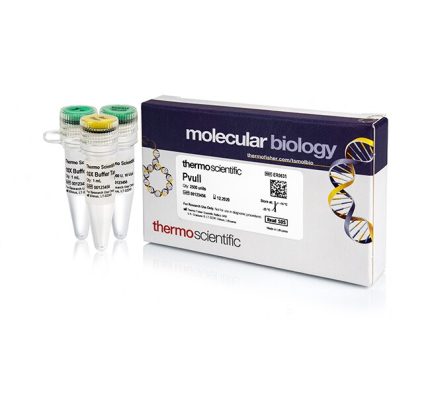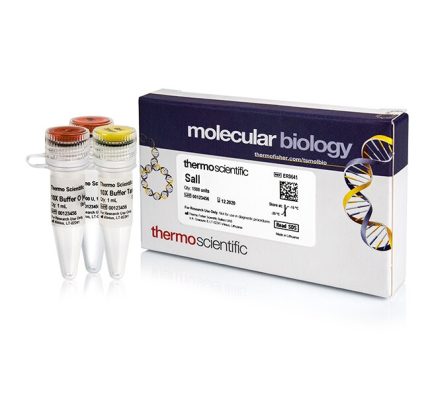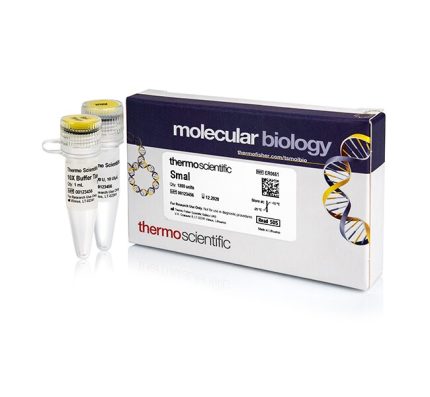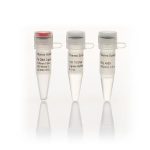
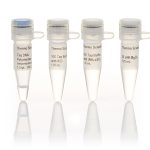
T4 DNA Ligase (5 U/µL)
10،625،000 تومان
4 در انبار (فعال برای پیش سفارش)
توضیحات
Thermo Scientific T4 DNA Ligase catalyzes the formation of a phosphodiester bond between juxtaposed 5′-phosphate and 3′-hydroxyl termini in duplex DNA or RNA. The enzyme repairs single-strand nicks in duplex DNA, RNA, or DNA/RNA hybrids. It also joins DNA fragments with either cohesive or blunt termini, but has no activity on single-stranded nucleic acids.
T4 DNA Ligase requires ATP as a cofactor.
Highlights
• Active in Themo Scientific restriction enzyme, PCR, and RT buffers (when supplemented with ATP)
• Fast—sticky-end ligation is completed in 10 minutes at room temperature
• Supplied with PEG solution for efficient blunt-end ligation
Applications
• Cloning of restriction enzyme generated DNA fragments
• Cloning of PCR products
• Joining of double-stranded oligonucleotide linkers or adaptors to DNA
• Site-directed mutagenesis
• Amplified fragment length polymorphism (AFLP)
• Ligase-mediated RNA detection (see Reference 3)
• Nick repair in duplex DNA, RNA or DNA/RNA hybrids
• Self-circularization of linear DNA.
Includes
• T4 DNA Ligase
• 10X T4 DNA Ligase Buffer
• 50% PEG Solution
Notes
• Binding of T4 DNA Ligase to DNA may result in a band shift in agarose gels. To avoid this, incubate samples with 6X DNA Loading Dye & SDS Solution at 70°C for 5 min or 65°C for 10 minutes and chill on ice prior to electrophoresis.
• The volume of the ligation reaction mixture should not exceed 10% of the competent cell volume in the transformation process.
• Prior to electro-transformation, remove T4 DNA Ligase from the ligation mixture using spin columns or chloroform extraction. The extracted DNA can be further precipitated with ethanol.
محصولات مشابه
BglII (10 U/µL)
موجودی در انبار


